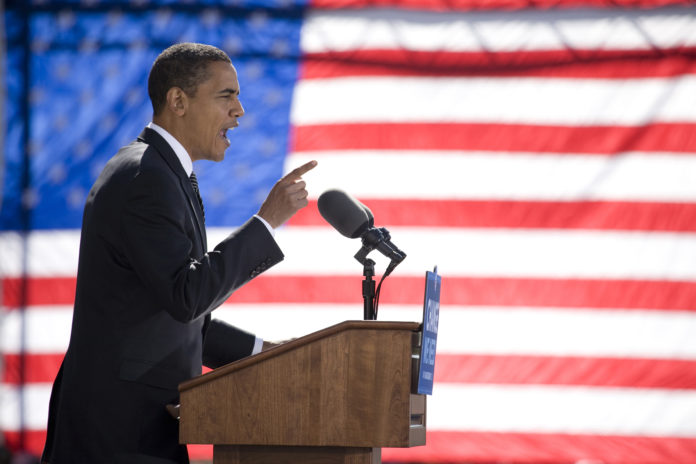Since the end of the financial crisis, consumer advocates have pushed for fiduciary duty on Wall Street—an obligation for brokers and financial advisors to act in the best interest of clients at all times. Last week, President Obama added his voice to the cause.
Speaking to a gathering at AARP headquarters in Washington, D.C., the President denounced the high-fee, commission-centric investments touted by many advisors and pushed for stronger regulations in the financial advisory field.
“After a lifetime of hard work, you should be able to retire with a sense of security and dignity,” said President Obama. “And that’s gotten tougher.”
“We’ve got to make sure that Americans who are doing the responsible thing by preparing for retirement are getting a fair share of the returns on those savings.”
Historically, investors’ biggest obstacle to retaining their fair share has been the conflicts of interest that pollute the advice they receive from financial advisors in the securities industry. “If you’re saving for retirement—if you’re sacrificing that new car, or that vacation to build a nest egg—you should have the peace of mind of knowing that the advice you’re getting for investing those dollars is sound,” said President Obama.
The challenge to achieving this is the lack of ground rules that govern financial advisors. Specifically, professionals in almost every industry that require licensure—law, medicine, insurance—are held to a fiduciary duty, defined as an obligation to act solely in the best interests of clients at all times, with no regards for one’s personal or professional gain.
By contrast, securities advisors are held merely to a suitability standard, which is as uncertain as it sounds. They are required only to ensure that investments are suitable for the respective clients.
“That’s hurting millions of middle-class families,” said President Obama. “There are advisors who receive back-door payments for steering people into bad retirement investments that have high fees and low returns. These inducements incentivize the broker to make recommendations that generate the best returns for [the advisor], but not necessarily the best returns for [the investor].”
President Obama cited statistics indicating that conflicts of interest in retirement advice result in annual losses of 1% per individual. “I know 1% may not sound like a lot,” admitted the President, “but it adds up. It can cut your savings by more than 25% over 35 years!”
All told, the costs add up to $17 billion per year in lost retirement savings. Outdated regulation, legal loopholes and ‘the fine print’ have added up to create a confusing landscape for people working to save for retirement. President Obama says it’s time to place the responsibility for clarifying that confusion directly on the financial industry.
‘Financial advisors shouldn’t be able to take advantage of their clients,” summarized President Obama. “The system makes it harder for those financial advisors who are trying to do the right thing.”
President Obama called on the Department of Labor to update the rules and regulations governing financial advisors to demand that these professionals put the best interests of their clients ahead of their own personal gain—like most other licensed professionals.
“You can’t have a conflict of interest,” President Obama concluded. “If your business model rests on bilking hard-working Americans out of their retirement money—then you shouldn’t be in business.”













